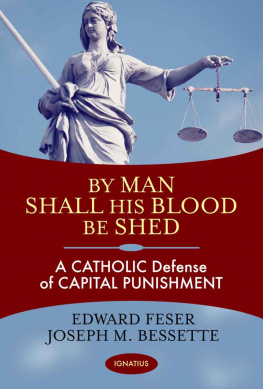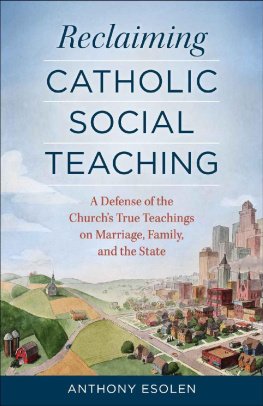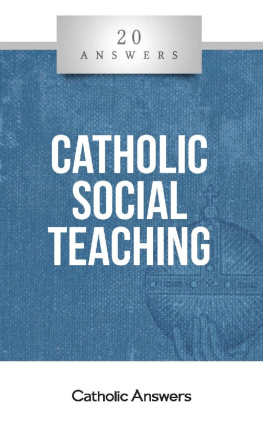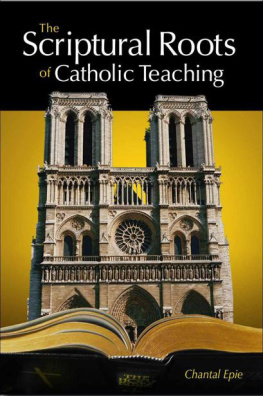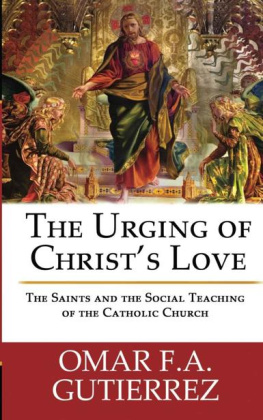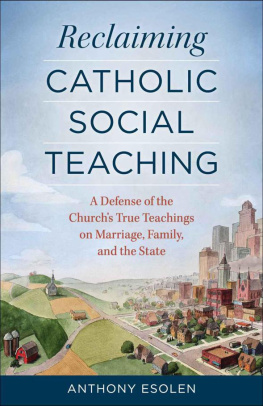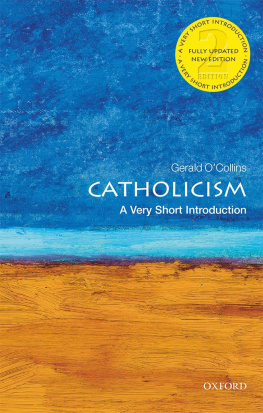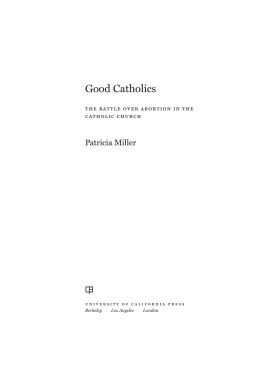University of Notre Dame Press
Notre Dame, Indiana 46556
All Rights Reserved
Copyright 2020 by the University of Notre Dame
Published in the United States of America
Library of Congress Control Number: 2020945494
ISBN: 978-0-268-10845-8 (Hardback)
ISBN: 978-0-268-10846-5 (Paperback)
ISBN: 978-0-268-10848-9 (WebPDF)
ISBN: 978-0-268-10847-2 (Epub)
This e-Book was converted from the original source file by a third-party vendor. Readers who notice any formatting, textual, or readability issues are encouraged to contact the publisher at
Let us then pursue what makes for peace and mutual upbuilding.
Romans 14:19
ACKNOWLEDGMENTS
This book began life at the University of Edinburgh as part of the project Peacebuilding through Media Arts. That project would not have happened without the vision of Jolyon Mitchell, director of the Centre for Theology and Public Issues, whose encouragement led me to begin work in this field and thus to a task and a calling I might not otherwise have discovered. The project was made possible by the generous support of the Binks Trust and Alison and Jo Elliot.
The peacebuilding scholars and practitioners who attended the interdisciplinary workshops of the Peacebuilding through Media Arts project were inspiring, and their writing and conversation have shaped and sharpened my thinking. I owe warm thanks to my former colleagues at the Centre for Theology and Public Issues and the School of Divinity for their support, companionship, and good humor during my time in Edinburgh. I learned much from the team at the Kroc Institute for International Peace Studies at the University of Notre Dame, and Scott Appleby deserves special thanks here for his encouragement.
Jolyon Mitchell, Scott Appleby, Ashley Beck, Anna Rowlands, and Susanna Hawksley were kind enough to read parts of the manuscript at various stages, and I am grateful for the generous engagement of the anonymous reviewers for the University of Notre Dame Press. Thanks also to Georgetown University Press for permission to reuse material in chapter 5. My thinking and writing owe much to the wisdom, friendship, and conversation of Cecelia Clegg, John Knowles, and Nick Austin S.J. In a different and life-changing way, the Amerindian peoples of the Rupununi and Pakaraimas taught me much about power, peace, and the struggle for justice.
During the period I was finishing the book, the Congregation of Jesus was home, and I would like to thank Provincial Superior Frances Orchard C.J. for encouraging me to finish the book and the sisters of the English Province for all their mercies, great and small. This book is dedicated to them.
Introduction
In April 2019, the leaders of South Sudan met at the Vatican for a spiritual retreat led by the archbishop of Canterbury, Justin Welby, and Pope Francis. Since 2013, South Sudan has been embroiled in a civil war that has killed hundreds of thousands of people and displaced millions more. The peace deal, which was brokered in 2018 between the president, Salva Kiir, and his erstwhile deputy turned rebel leader, Riek Machar, remains fragile. Pope Franciss remarks to the two leaders were uncompromising. Telling them that Gods gaze was on them, he added, There is another gaze directed to you: it is the gaze of your people, and it expresses their ardent desire for justice, reconciliation, and peace. The pope continued, I urge you, then, to seek what unites you, beginning with the fact that you belong to one and the same people, and to overcome all that divides you. People are wearied, exhausted by past conflicts: Remember that with war, all is lost! Then, kneeling with some difficulty, he kissed the feet of each of the leaders in turn, begging them, I am asking you as a brother to stay in peace. I am asking you with my heart, let us go forward.
After Islamic State forces had been driven out of the Nineveh Plains of Iraq in 2017, returning Christian communities were faced with scenes of destruction. Homes, churches, and schools had been badly damaged, and a major task of reconstruction lay ahead. No less important was the task of human and spiritual rebuilding. Fr. Araam Hanna, a Chaldean priest in Alqosh, noticed how profoundly people had been traumatized by their experience: they were irritable, deeply fearful, and disposed to violence. After years of insecurity, they lacked trust in political processes and hope for the possibility of a different future. In response, Hanna founded the New Hope Trauma Centre of Iraq, which offers mental health services for those suffering from trauma; courses on topics such as anger management, grief, coping skills, and communication; and education and arts workshops.
In conflict zones around the world, from South Sudan to Colombia to the Philippines and the Nineveh Plains of Iraq, the Catholic Church is deeply embedded in the task of peacebuilding.
The Catholic Churchs capacity to act as a force for peacebuilding is immense. The Church has a two-thousand-year history of teaching and theological and moral reflection, vibrant traditions of spirituality, and a global presence in a dizzying variety of cultural contexts. Among the biggest religious groups on the planet, it is unique in being organized under a single head, with a single centralized teaching authority that serves to unify, even if only sometimes loosely, its 1.4 billion members. Allied with this hierarchical structure is a huge and diverse range of institutions and networks through which the Church is present and active on a local level. All of these features make the Catholic Church a potentially world-changing force for justice and peace. So what would it take for the Catholic Church to realize fully its potential as a force for peacebuilding? What kind of transformation would it require? And what kind of growth and transformation might it require of the tradition of Catholic social teaching itself?
These questions are what drive this book, and they give me two major tasks to pursue in what follows. First, if the Church is to become a major force for peacebuilding, then its teaching on peace needs to become better known and embedded, as David OBrien puts it, Church wide and parish deep.
Second, if the Church is to become a major force for peacebuilding, then Church teaching on peace needs to continue to grow and develop. To borrow a phrase from John Courtney Murray, the Churchs teaching on peace represents a growing edge of the tradition, and this growth needs to be encouraged and nurtured. Exploring the theologies and spiritualities that motivate and sustain the work of grassroots peacebuilders also offers insights that can enrich and theologically deepen the Churchs formal teaching tradition.
IN A UNIVERSITY WAY
This book works in the spaces between the potential of the Churchs teaching on peace and the many complex and difficult situations in which the practice of peacebuilding takes shape. Much of this kind of work is being undertaken by those engaged directly in the work of peacebuilding in situations of violent conflict. These are the people who are awakening the Churchs potential as a force for peacebuilding, and these are the people who put into practice, day by day, the Churchs teaching on topics like solidarity, hope, and reconciliation and thereby discover firsthand its strengths and its weak points. My work in this volume is undertaken in conversation with their experience, but it is undertaken in what Jon Sobrino S.J. calls a university way. My focus is on the tradition of Catholic teaching on peace, on the coherence, strength, and vitality of that tradition, and on critical and constructive theological interaction with it.



